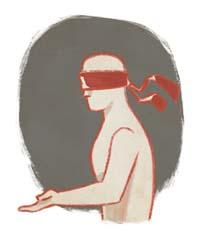Forced volunteers in clinical trials
2011/02/12 Galarraga Aiestaran, Ana - Elhuyar Zientzia
The problem is not new. Some examples of the past appear in Obasogie's own article. For example, while the Nazis conducted unacceptable experiments in their laboratories, US health services denied anti-syphilis treatment to hundreds of people in order to analyze the evolution of the disease. All these people were black and the experiment lasted until 1972.

Obasogie has also mentioned the work of historian Susan Reverby. Reverbi has announced that, in the 1940s, U.S. health service personnel infected patients, prisoners, and soldiers with syphilis from Guatemala to test whether penicillin was a suitable drug. In some cases, sick prostitutes were used to spread syphilis.
The publication of these events obliges Barack Obama to apologize to the victims. Moreover, Obama has called on the Bioethics Committee to ensure the protection and ethical treatment of people involved in the investigations.
However, Obasogie believes that even though the statements are deserving, Obama has fallen short. He believes that it is not enough to review the rules of the experiments, but considers that the whole context must be analyzed. In fact, the number of volunteers the pharmaceutical industry needs to test medicines grows year after year. And Obasogie is clear about who the first candidates are: the poor and undocumented immigrants. They are driven by hundreds or thousands of dollars offered by companies for their participation.
Abroad, in prisons
Obasogie says the second candidate is the population of poor countries. Last year, Elhuyar magazine published a series of articles on placebo. One of them refers to the ethical question, which also appeared in it. Specifically, the researcher of the Chair of Law and Human Genome, Leire Escajedo, warned that pharmaceutical companies use the double standard. Thus, in Africa they accept research that in no case would be accepted in the United States, for example, anti-AIDS treatments that are tested with the use of placebo.
The data provided by the obasogias coincide with those published by Elhuyar that half of the clinical trials conducted by US pharmaceutical companies are conducted abroad, especially in India and sub-Saharan Africa, a trend that is increasing year after year.
Finally, Obasogie also mentions those in third place on the list of forced volunteers: prisoners. Due to past excesses, inmates' participation in clinical trials is heavily regulated. In recent times, Obasogie has denounced that researchers are being given facilities to pass over the rules. Moreover, the Institute of Medicine itself, which advises the Government, has recommended to soften the rules.
Therefore, Obasogie considers that the greatest ethical debate in science and medicine does not refer to certain technologies or synthetic biology, but to a much more basic issue, the treatment given to the other.
Obasogie's article concludes with a question addressed to the US Bioethics Committee: Is it ethical to ask the most vulnerable members of society to offer their bodies to science?
Published in Gara

Gai honi buruzko eduki gehiago
Elhuyarrek garatutako teknologia






